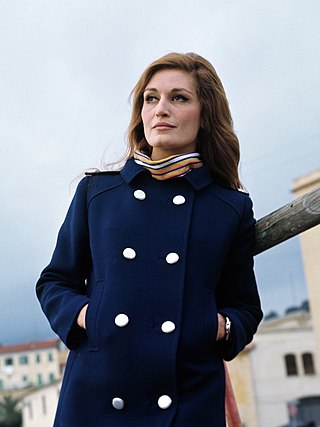
Iolanda Cristina Gigliotti, professionally known as Dalida, was an Italian naturalized French singer and actress. Leading an international career, Dalida has sold over 140 million records worldwide. Her best known songs include "Bambino", "Gondolier", "Les Enfants du Pirée", "Le Temps des fleurs", "Darla dirladada", "J'attendrai", "La Danse de Zorba", "Bang Bang", "Il venait d'avoir 18 ans", "Le Jour où la pluie viendra", "Gigi l'amoroso", "Laissez-moi danser", "Salama ya salama", "Helwa ya baladi", "Mourir sur scène" and "Paroles, paroles" featuring spoken word by Alain Delon.
"Salma Ya Salama" is an Egyptian folk song by Dalida from 1976, based on the original 1919 song by Sayed Darwish. The track became one of the singer's biggest hits and a remix, released in 1997, was certified silver in France.

"Paroles, paroles", also given as "Paroles... Paroles...", is a song by French singer Dalida featuring French actor Alain Delon, with music by Gianni Ferrio and lyrics by Michaële, released on 17 January 1973 as the lead single from Dalida's upcoming album Julien (1973). It is a cover of the 1972 Italian song "Parole parole", originally performed by Mina and Alberto Lupo.

"Les Enfants du Pirée" is a French song by singer Dalida, first released on EP in June 1960. It was a big international summer hit and remained one of major successes of her career. The song comes from the Greek movie Never on Sunday, nominated for 8 Oscars and won an Oscar for the music of Manos Hadjidakis, sung by Melina Mercouri who starred in the movie along Jules Dassin.
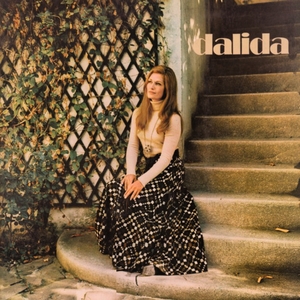
This album of Dalida coincided with several changes in her career: the 1970s were coming, her label was no longer Barclay Records but her brother Orlando's International Shows, and she was also changing her style to a more mature adult contemporary music. The success of this album is the proof, exemplified by the Greek folkloric summer hit "Darla dirladada", "Ils ont changé ma chanson," and "Lady d'Arbanville".

Une Vie is an album by Dalida, which continues the adult contemporary style of her previous album and contains songs such as the Italian "Mamy blue", "Avec le temps" and "Les Choses de l'amour".

Olympia 71 is an album of songs by Dalida recorded live at the Olympia in Paris in 1971 and released in 1972.

Manuel is a studio album of songs by Dalida recorded and released in 1974.
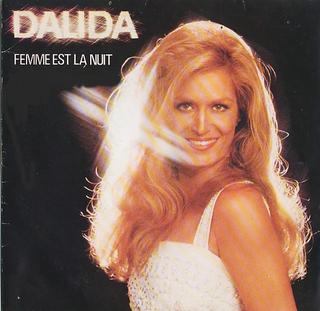
Femme est la nuit is a 1977 album by Dalida.
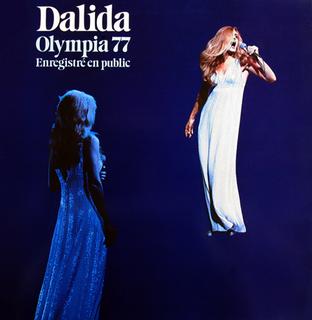
Olympia 77 is an album of songs by Dalida recorded live at the Olympia in Paris and released in 1977.

Gigi in Paradisco is a bilingual French and English-language album released in 1980 by Italian and French singer Dalida. Two singles were released, both of which received gold certifications.
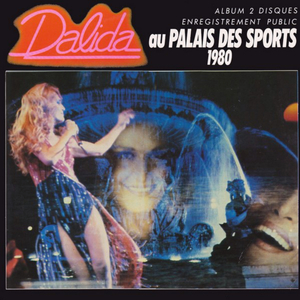
Palais des Sports 80 is a live double album by Dalida, recorded live at the Palais des Sports in Paris in January 1980.

Olympia 81 is a French-language album released in 1981 by French singer Dalida. The album was highly successful and received a gold certification.

Mondialement vôtre is a multi-language album released by Dalida in 1982. This album contains new French single material, plus other language versions of Dalida previous hits and a new Arabic Medley called "Aghani Aghani" that is the biggest hit of the album.

Le Visage de l'amour is the last album Dalida released a year before her death. It was also her first album to be made as a CD format. The title reprises the phrase usually used by Dalida to describe her public and her fans, which had been picked up by the big French artist Charles Trenet who decided to write a song for Dalida bearing this name.

"Bambino" is a song recorded by Italian-French singer Dalida that became her first major hit. It was first released on 28 October 1956 as the title song of her third EP, prior to her debut album Son nom est Dalida, where it was also included. It is a French version of the Neapolitan song "Guaglione".
"La Violetera" is a 1914 cuplé song, with the rhythm of a habanera, composed by José Padilla and with lyrics by Eduardo Montesinos, originally performed by Carmen Flores. It was first popularized by Raquel Meller, and later by Sara Montiel. The instrumental version is also popular as a tango. In Spanish, a Violetera is a woman who sells violets.
"Mourir sur scène" is a 1983 song by Dalida, written by Michel Jouveaux and Jeff Barnel, and is often recognized as her most iconic late-career song. Today, it is widely considered to be one of the most popular French songs in music history.

"Dans la ville endormie" is a French language song recorded by singer Dalida, first released on EP during summer of 1968. It is the product of Dalida's collaboration with composer William Sheller with whom she worked on Le temps des fleurs, her album released later that year. English language cover "My year is a day" by Les Irrésistibles achieved success several months later.
















